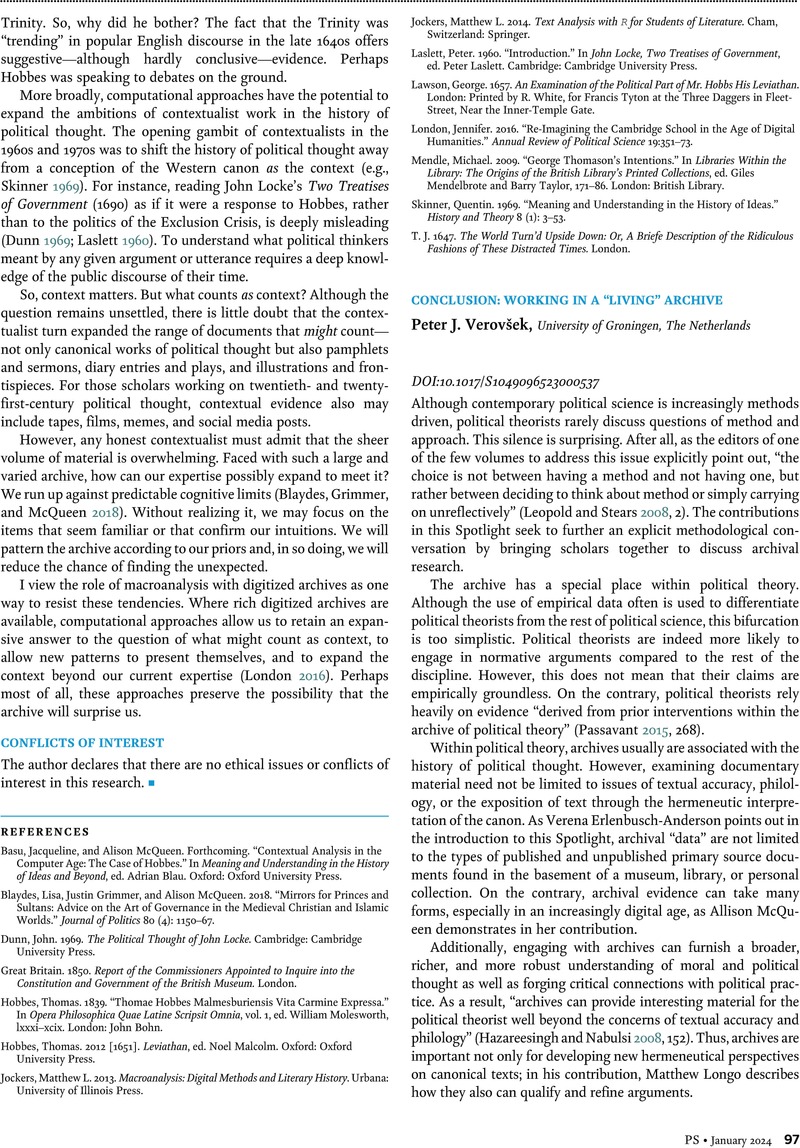No CrossRef data available.
Article contents
Conclusion: Working in a “Living” Archive
Published online by Cambridge University Press: 29 December 2023
Abstract
An abstract is not available for this content so a preview has been provided. Please use the Get access link above for information on how to access this content.

- Type
- Archives in the History of Political Thought and Beyond
- Information
- Copyright
- © The Author(s), 2023. Published by Cambridge University Press on behalf of American Political Science Association
References
REFERENCES
Guisan, Catherine. 2012. A Political Theory of Identity in European Integration: Memory and Policies. New York: Routledge.Google Scholar
Hazareesingh, Sudhir, and Nabulsi, Karma. 2008. “Using Archival Sources to Theorize about Politics.” In Political Theory: Methods and Approaches, ed. Leopold, David and Stears, Marc, 150–70. Oxford, UK: Oxford University Press.CrossRefGoogle Scholar
Koselleck, Reinhart. 1985. Futures Past: On the Semantics of Historical Time. Cambridge, MA: MIT Press.Google Scholar
Leopold, David, and Stears, Marc. 2008. “Introduction.” In Political Theory: Methods and Approaches, ed. Leopold, David and Stears, Marc, 1–10. Oxford, UK: Oxford University Press.CrossRefGoogle Scholar
Passavant, Paul A. 2015. “‘Interpretation’ and the ‘Empirical’: Similarities between Theoretical and Empirical Political Science.” Contemporary Political Theory 14 (3): 256–71.CrossRefGoogle Scholar
Verovšek, Peter J. 2020. Memory and the Future of Europe: Rupture and Integration in the Wake of Total War. Manchester, England: Manchester University Press.CrossRefGoogle Scholar
Verovšek, Peter J. Forthcoming. Engaged Critical Theory: Jürgen Habermas as a Public Intellectual. New York: Columbia University Press.Google Scholar


